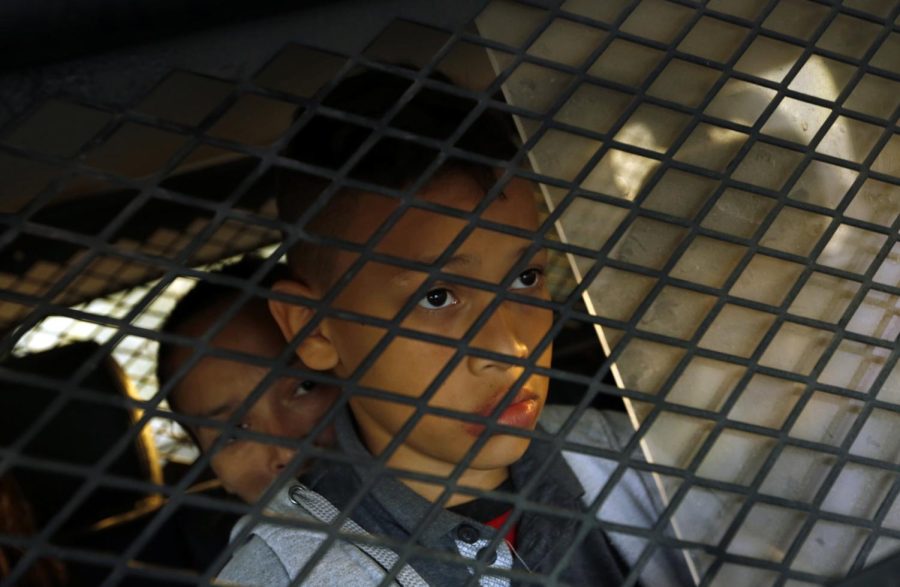For a country divided by conversations around critical race theory, family separation taking place at the border is as abhorrent as it is unsurprising.
In April 2018, the Trump administration announced a “Zero Tolerance” immigration policy that called for immediate detention of all adults who illegally crossed the border and allowed children to be separated from their parents. Despite these policies proving to be ineffective in the past, the United States immigration authorities concluded that harsher punishments, such as taking children away from their parents, would be a functional deterrent for people immigrating into the U.S. illegally.
U.S. immigration authorities were grossly unprepared for what happened next, and the poorly planned immigration policy manifested in its chaotic implementation.
Cacophonies of distraught wails sprung effortlessly from horror-stricken children as overworked staff across various organizations did their best to keep up with children arriving in overwhelming numbers. Lack of preparation was so severe that workers report being told not to comfort the children. Even worse, they were asked to prohibit the children from hugging each other.
Research gives us a glimpse of what the lives of these children will be like as a result of family separation alone.
A report published by the Inter American Commission on Human Rights (IACHR) revealed that, “children with an incarcerated parent are 3-4 times more likely than those without an incarcerated parent to engage in delinquent behavior, and 2.5 times more likely to experience mental health problems (e.g., anxiety and depression) (Makariev & Shaver, 2010).” The report also explores the effects of family separation due to immigration policy from an attachment theory perspective. It found that the unexpected physical separation between a parent and a child disrupts the essential base necessary for the healthy development of social, cognitive, and emotional regulation skills that are fundamental throughout life.
In Jan. of 2021, the Justice Department rescinded the Trump administration’s Zero Tolerance Policy where it was criticized as a human failure. A report from the Justice Office of Inspector General revealed that upon implementation, there was neither a clear plan nor resources to reunite children with their parents. The Department of Homeland Security (DHS), who was tasked with detaining parents, and the Department of Health and Human Services, who was tasked with caring for their children, were reported to not be in sync during the policy’s implementation. DHS was caught lying in regards to keeping the database of children and their parents to promote reunification. Parents were deported with their children still in the U.S and once in their home countries, reuniting parents with their children has become nearly impossible. The devastating reality is that children were lost in the system and many families will likely never be reunited again.
These “lost” children now find themselves stuck in the foster care system, in a country that is divided by folks who refuse to acknowledge racial disparity.
Critical race theory (CRT), a legal analysis and framework found in higher academia, posits that race is a social construct and that racism is inherent in legal institutions in the U.S. CRT is not taught in any California K – 12 campuses, yet Temecula Valley Unified School District moved to ban it from their school district in efforts to stop the ideology from entering their curriculum at all. Ironically, Temecula finds itself just 73 miles from the border, where family separation was taking place.
Frameworks like CRT offer policy makers the perspective of people that have historically had little to no advocacy. They provide an opportunity to collaboratively use solution oriented thinking and offer support to groups that have been negatively impacted by problematic policies. More importantly, understanding how racism has systematically shaped this country can help prevent humanitarian disasters like the most recent “Zero Tolerance” policy.
At this very moment there are children experiencing pain so incomprehensible, it is altering their brain development and genetic expression. The schools they attend are not prepared to deal with the behavioral and cognitive challenges that will arise as a natural consequence of the policy that ripped them away from their parents.
In the fight against racism, allowing conversations around CRT to explore how the U.S. was able to implement a policy as harmful as the “Zero Tolerance” immigration policy is not only the bare minimum, but the only place to start.


